Legendary Broadway Songwriter Stephen Sondheim Dies at 91
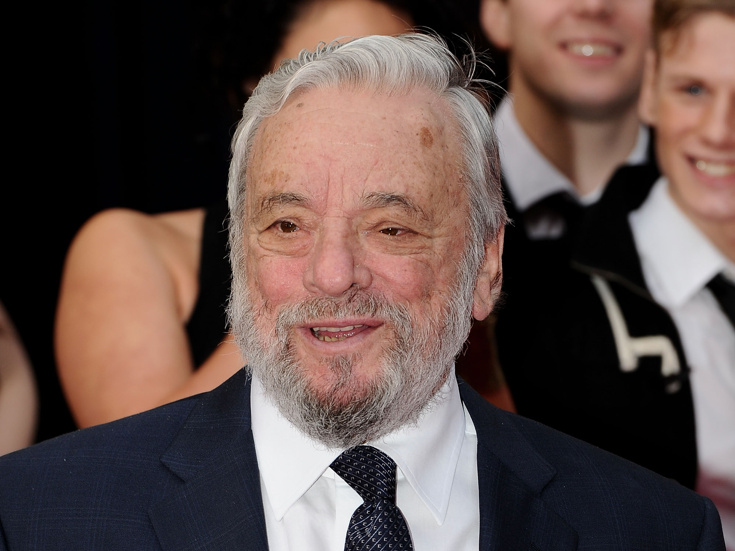
(Getty Images)
Beloved composer and pioneer of American musical theater Stephen Sondheim died on November 26 at his home in Roxbury, Connecticut, according to The New York Times. He was 91.
Sondheim's expansive repertoire includes the scores of Into the Woods, Sweeney Todd, Company, Sunday in the Park with George and A Little Night Music, as well as the lyrics to Gypsy and West Side Story. His work earned him eight Tony Awards (more than any other composer), eight Grammys, an Academy Award and a Pulitzer Prize. In 2014, he was awarded the Presidential Medal of Freedom.
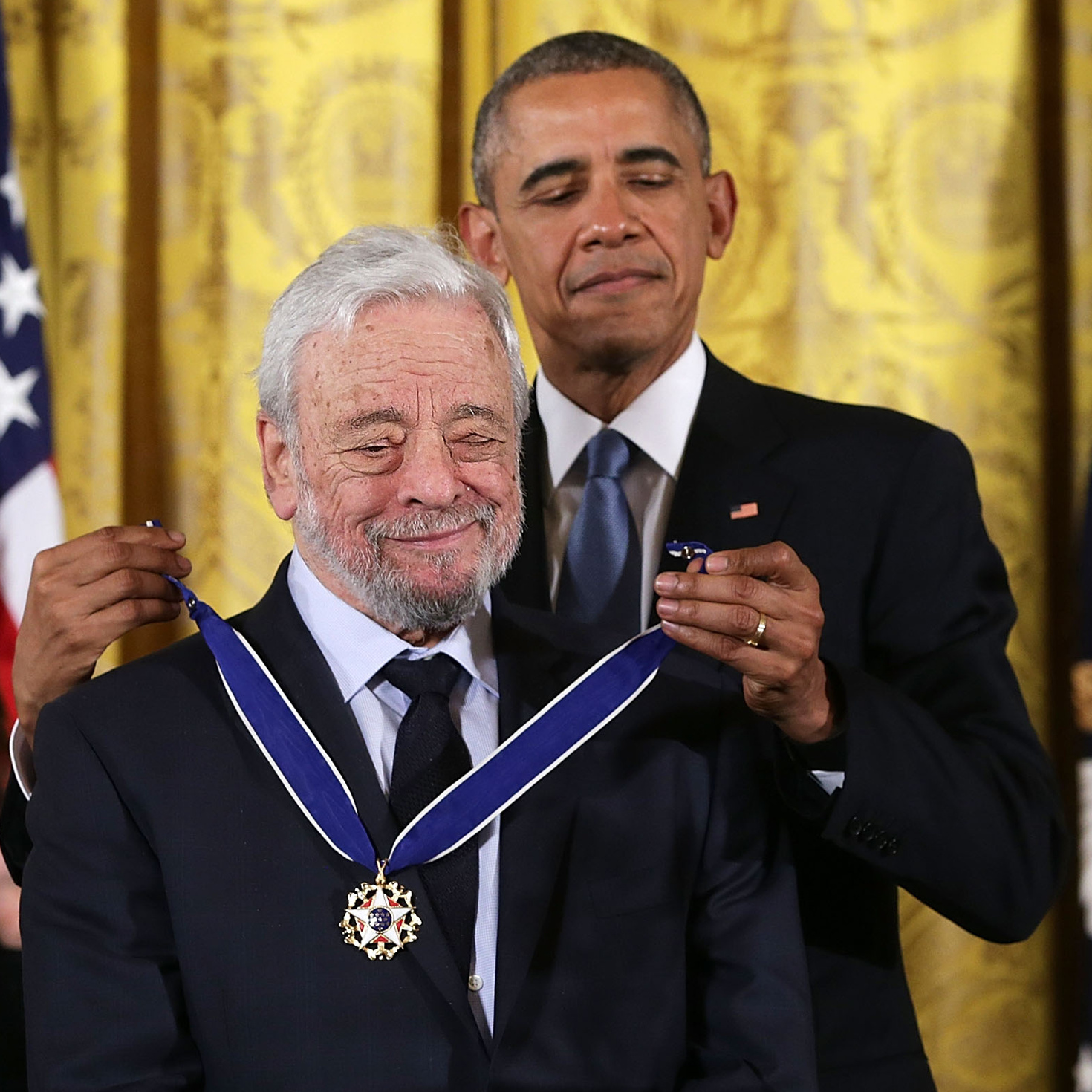
(Photo: Alex Wong/Getty Images)
Sondheim was born on March 22, 1930 and grew up on the Upper West Side of Manhattan. He was the only child to Herbert and Janet Sondheim, both in fashion manufacturing and designing. His father instilled in him a passion for music—piano performance in particular. Sondheim's parents divorced in 1941 and he relocated with his mother to Pennsylvania. By coincidence, the Sondheims' family friends Dorothy and Oscar Hammerstein II (who had a son Stephen's age) owned a farm nearby, thus beginning a mentorship that would shape a then-ten-year-old Sondheim's career.
While Herbert Sondheim introduced his son to music, it was Hammerstein who had a profound influence on the young composer. "If he'd been a geologist," Sondheim often stated, "I would have been a geologist." While attending the college-preparatory George School, Sondheim wrote and produced his first work: By George, a parody of life at the institution. He presented it to Hammerstein, asking him to review it as someone who did not know the then-sixteen-year-old. Hammerstein declared it the worst thing he'd ever seen, but also sat down with his new apprentice to discuss why. "I learned more in that afternoon," Sondheim later recalled, "than most people learn about songwriting in a lifetime." At the age of 19, Sondheim attended the opening of Richard Rodgers and Hammerstein's South Pacific, where he first met Hal Prince, who would go on to direct many of his shows.
Later in his career, Sondheim continued the mentorship legacy and acted as a guide to Adam Guettel, son of the late Mary Rodgers and grandson of Hammerstein's frequent collaborator of Rodgers. "I just love passing on what Oscar passed on to me," Sondheim said while sitting next to Guettel in an interview for the Dramatists Guild Fund. Sondheim also mentored the late Jonathan Larson, and an actual voicemail he left for him is included in Larson's musical Tick, Tick…Boom!
Sondheim's first major stage project following his graduation from Williams College and studying under composer Milton Babbitt was a musical adaptation of the unproduced play Front Porch in Flatbush. Sondheim, at age 22, composed the score to what would become Saturday Night, featuring a book by the play's writers Julius and Phillip Epstein. It was scheduled to open in 1955, but was scrapped following the death of lead producer Lemuel Ayers. In a 2000 interview with The New York Times, Sondheim explained his mixed feelings of fondness and embarrassment for his first show, saying, “It's my baby pictures. You don't touch up a baby picture—you're a baby!"
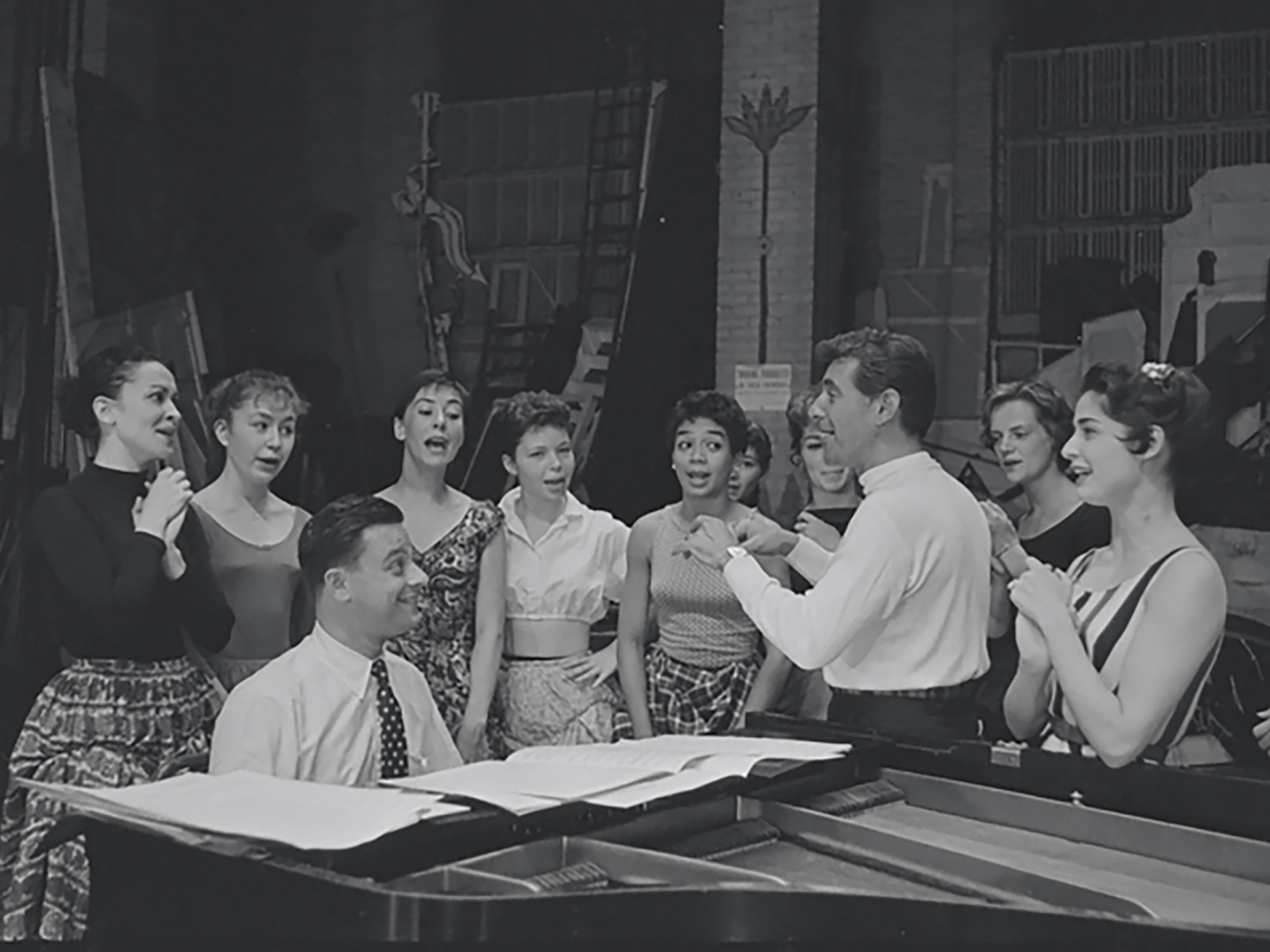
(Photo: Friedman-Abeles/NYPL)
Sondheim's first Broadway success was not as a composer, but as lyricist for 1957's West Side Story. He met book writer Arthur Laurents, who was familiar with his work from Saturday Night, at a party, where Laurents asked him to audition to write lyrics for the project (Bernstein had been attached to write music). Though he was initially hesitant to jettison composing, Sondheim was persuaded by Hammerstein to accept their offer. Following the show's success, Sondheim again collaborated with Laurents on Gypsy (again solely as lyricist; the show's headliner Ethel Merman insisted Jule Styne compose.) The show opened in 1959.
The first show to open on Broadway with music and lyrics by Sondheim was A Funny Thing Happened On the Way to the Forum in 1966. The show won the Tony Award for Best Musical and ran for more than two years. This was followed by two less commercially successful works: Anyone Can Whistle, which marked the Broadway musical debut of Angela Lansbury, and Do I Hear a Waltz?, the last project Sondheim worked on without both composing and writing lyrics—Sondheim filled in for his late mentor Hammerstein and collaborated with Rodgers, earned a Tony nomination in the category of Best Composer and Lyricist.
Beginning in 1970, Sondheim embarked on an 11-year period of collaboration with Prince, starting with Company. The show won six Tony Awards, including the first two for Sondheim (separately for music and lyrics) and Best Musical. Sondheim won again for Follies in 1972, A Little Night Music in 1973 and Sweeney Todd in 1979. He was also nominated for the score of his other two Prince-helmed shows: Pacific Overtures and Merrily We Roll Along.
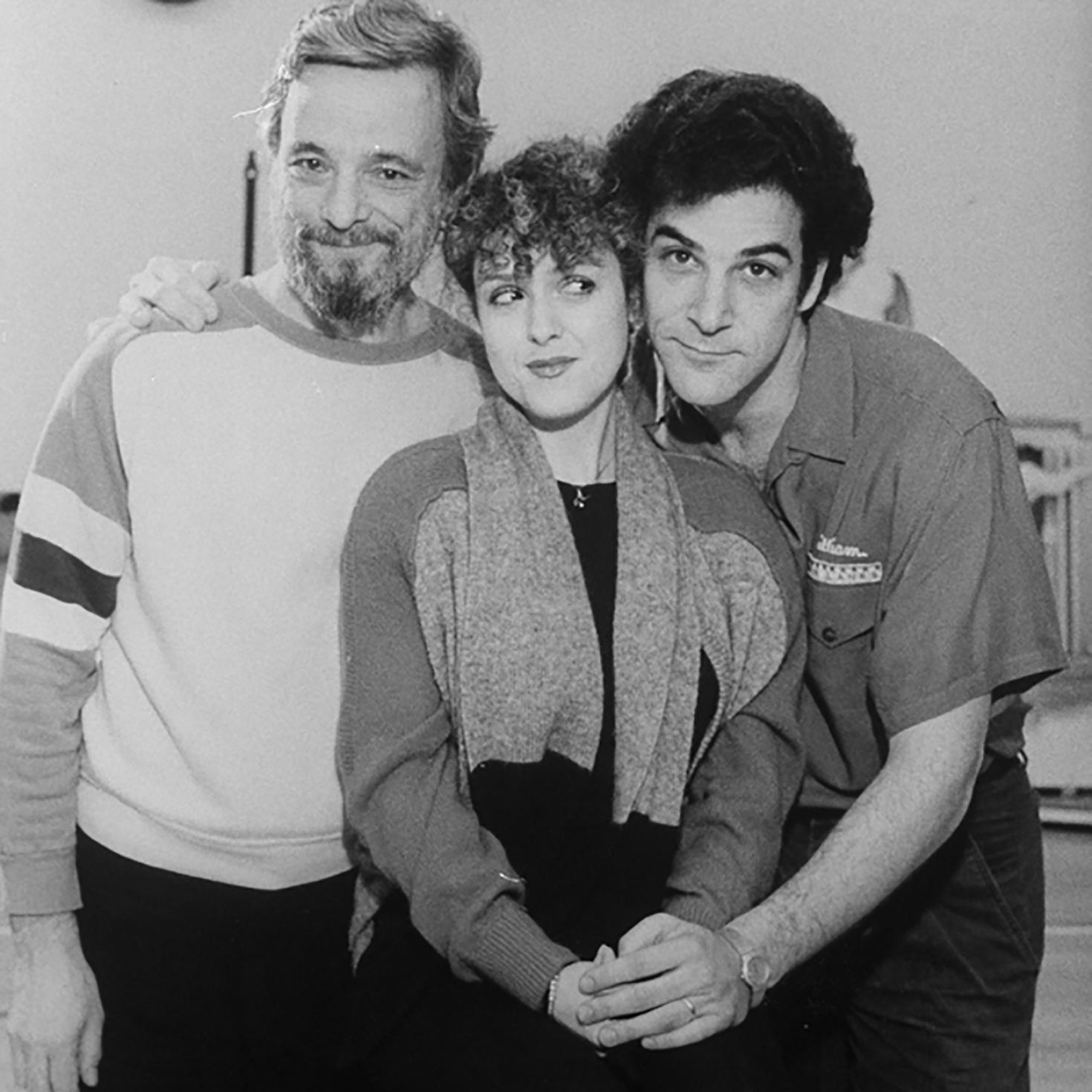
(Photo: Martha Swope/NYPL)
Sunday in the Park with George marked the first musical collaboration between Sondheim and James Lapine, who wrote the book and directed the original production. The show won the 1985 Pulitzer Prize for Drama: the sixth of eight musicals to do so. The two collaborated again in 1987 on Into the Woods and in 1994 on Passion. Like much of Sondheim's work, the latter was well-received though commercially unsuccessful; at 280 performances, it is the shortest-running show to win the Tony for Best Musical.
Sondheim's additional Broadway ventures include Assassins and The Frogs. He never wrote the book for any of his shows, but in 1996, his one and only play, Getting Away with Murder, written with George Furth, premiered on Broadway. It ran for 17 performances after opening. Sondheim reunited with Prince soon after that on the musical comedy Wise Guys, though following a delay in its Broadway premiere, it was reworked and renamed Bounce. It never came to Broadway following less-than-positive out-of-town reviews, but did play off-Broadway at the Public Theater in 2008 under the name Road Show. At the time of his death, Sondheim was working on a musical adaptation of the Luis Buñuel films The Exterminating Angel and The Discreet Charm of the Bourgeoisie with David Ives for the Public Theater.
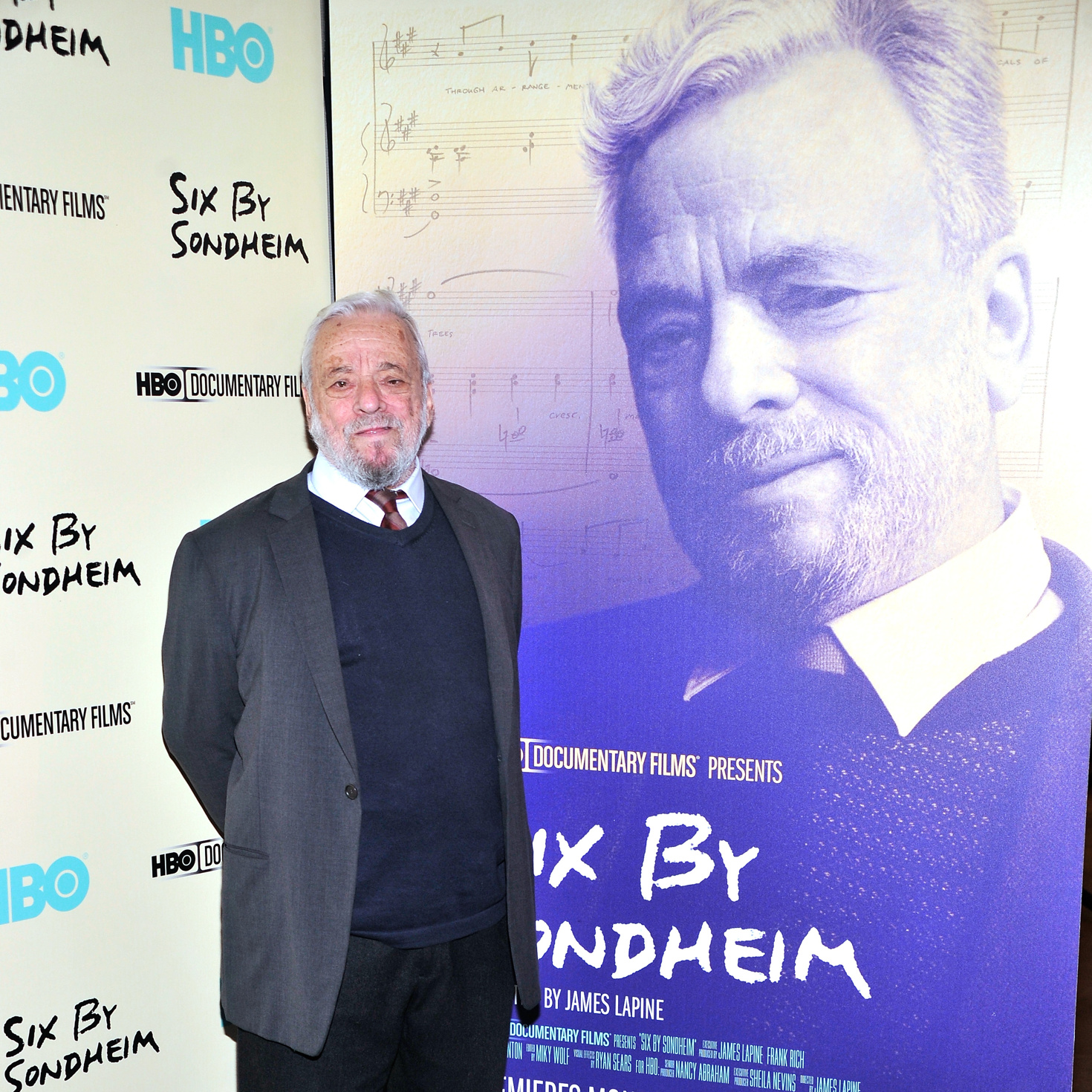
(Photo: Stephen Lovekin/Getty Images)
As his work will undoubtedly live on in stage productions around the world, Sondheim's writing has also been immortalized on film, including the score of the 1966 TV movie musical Evening Primrose and songs for the 1990 film Dick Tracy. One song for the film, "Sooner or Later (I Always Get My Man)," won him an Academy Award. He also penned the screenplay (alongside Anthony Perkins) for the 1983 mystery The Last of Sheila. The film is not the only evidence of Sondheim's intense fondness for puzzles: the composer also frequently published a series of crosswords and other word games in New York magazine.
Sondheim's work is featured in several revues and anthologies, including Side by Side by Sondheim, Marry Me a Little, You're Gonna Love Tomorrow, Putting It Together, Sondheim on Sondheim and A Bed and a Chair. The latter featured a new number titled "God," a self-parodying song that Sondheim wrote about his own legacy. The composer's opuses were also explored in the HBO documentary Six by Sondheim.
In 2008, Sondheim was honored with a Special Tony Award for Lifetime Achievement.